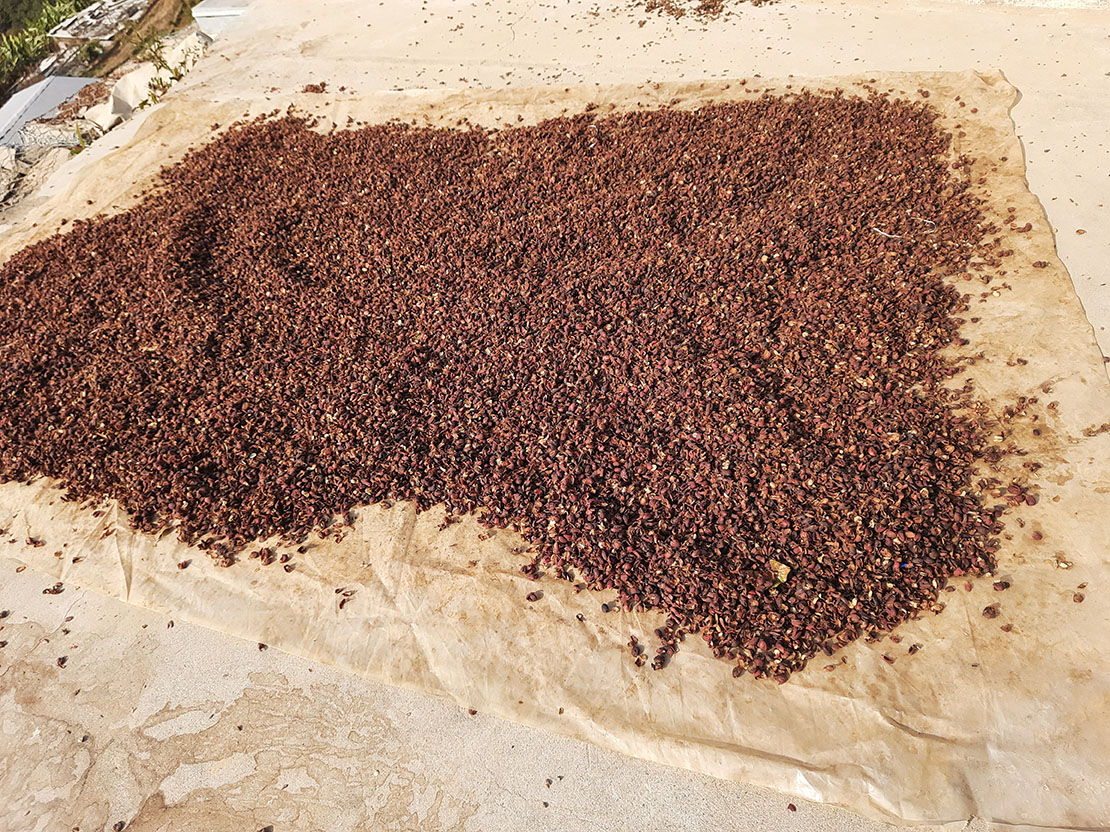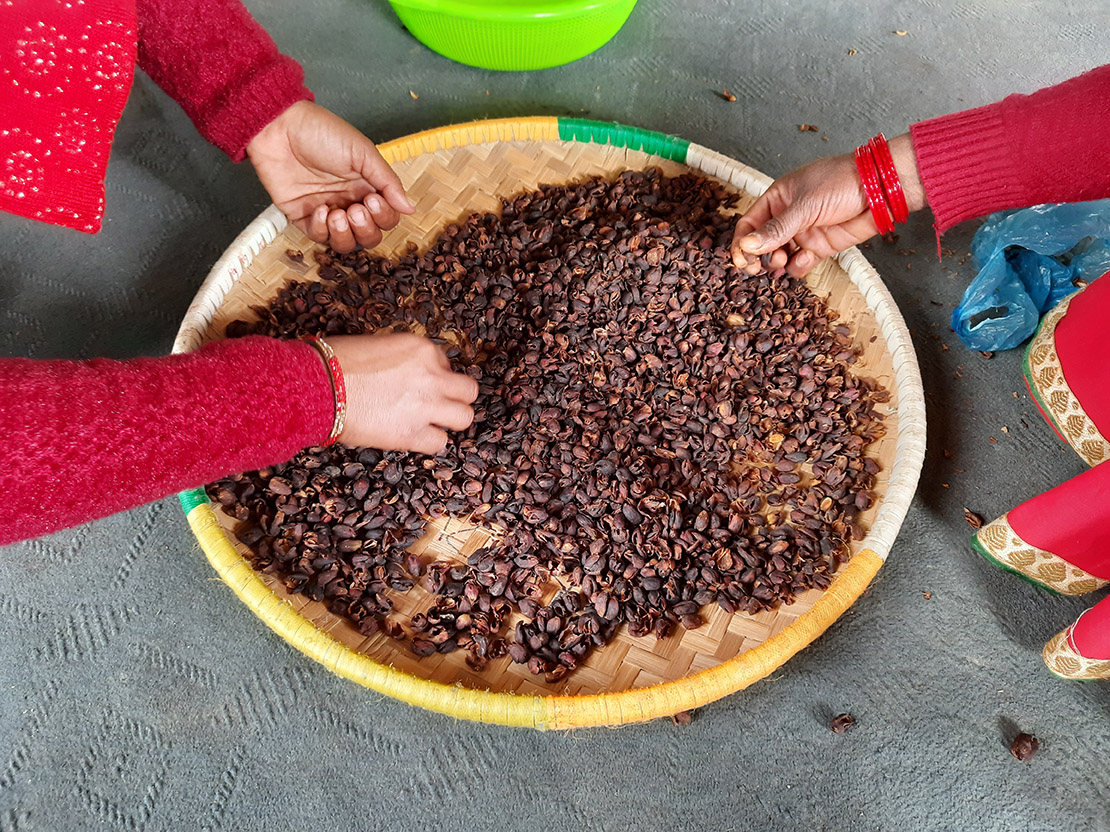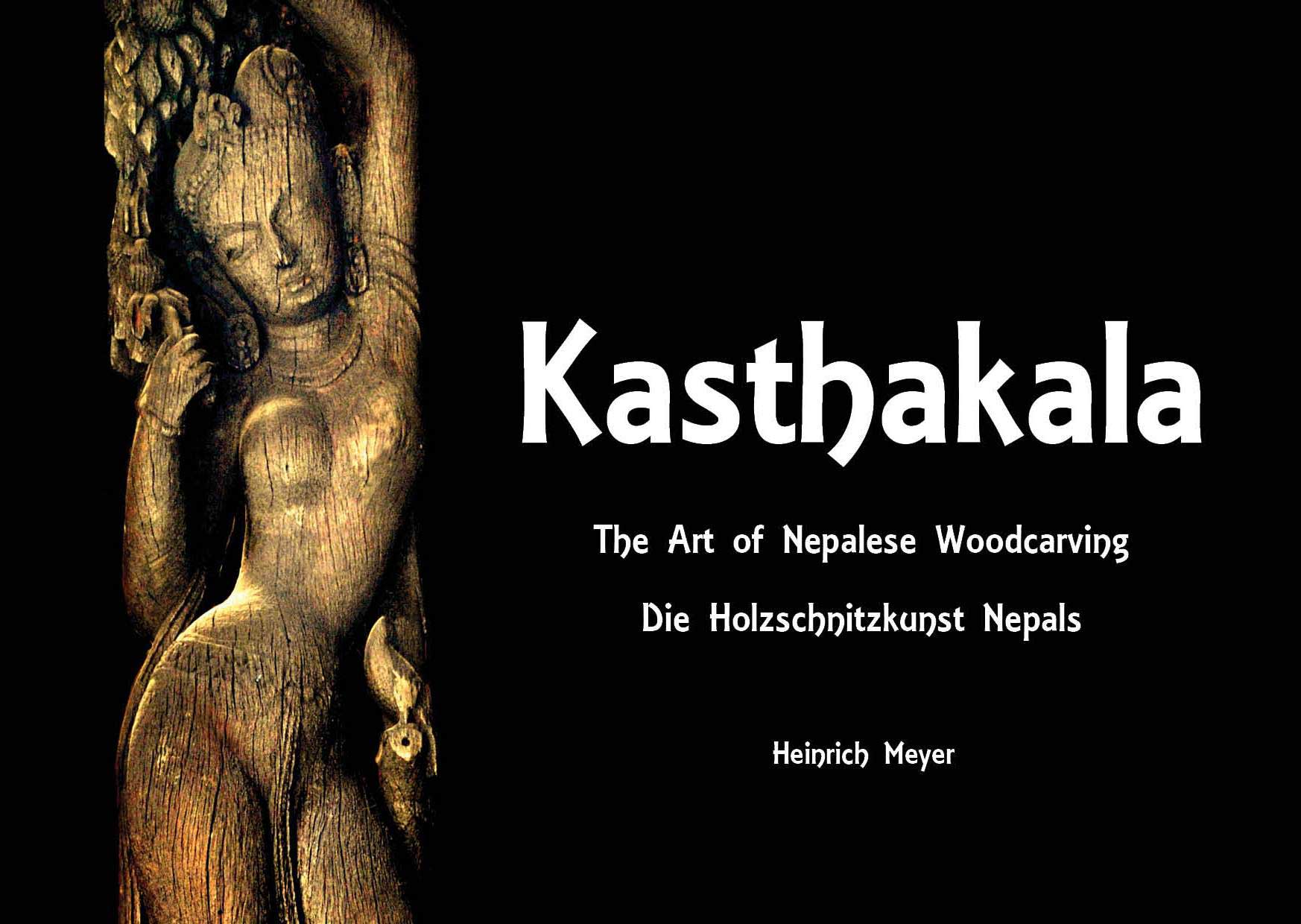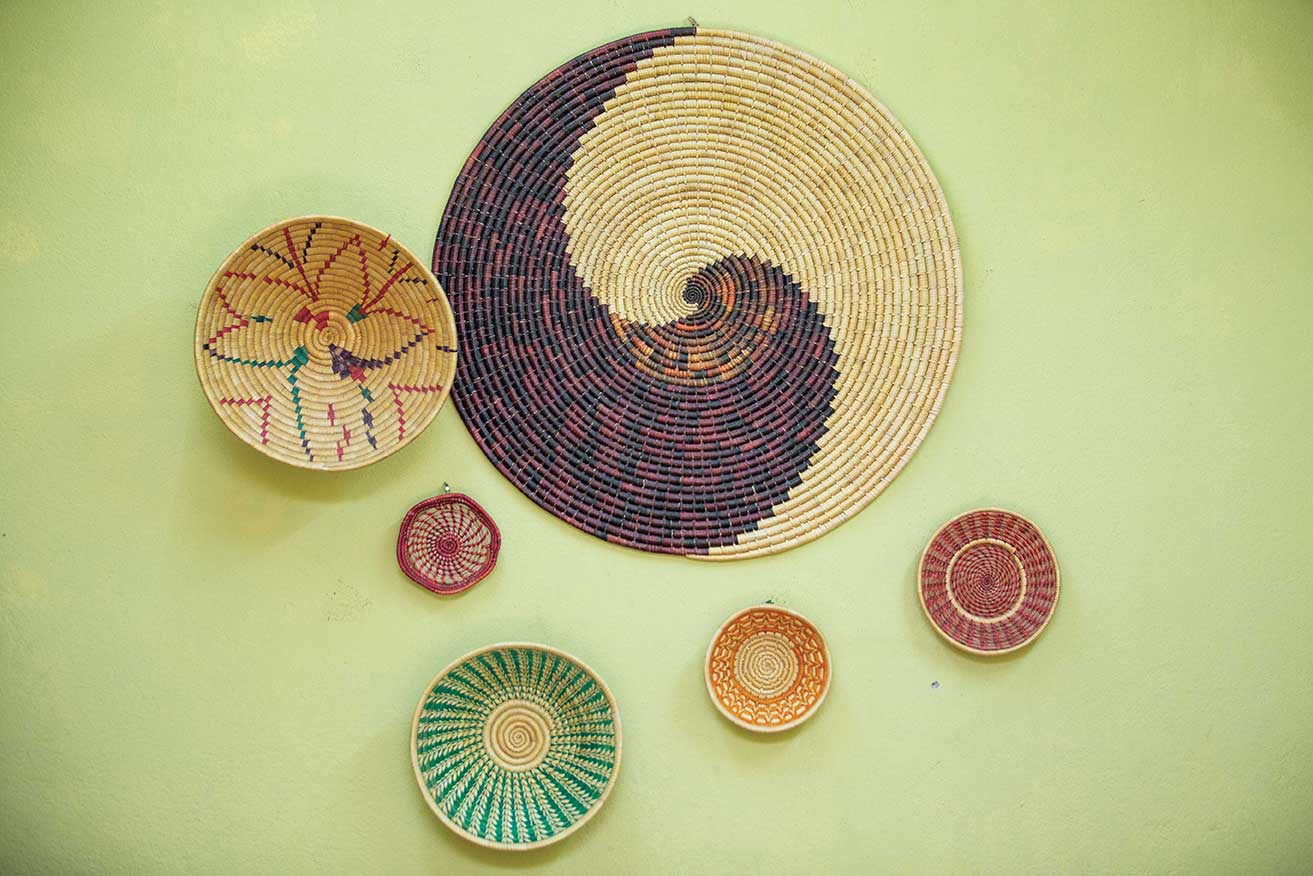
In March 2021, I had the chance to taste a different kind of muffin. Made by Makoo Bakery in Jawalakhel, it smelled like coffee and had that peculiar taste of coffee beans. It turns out that the bakery had added cascara powder, made from dried coffee cherry skins, to the muffins. Though it was a new flavour for a Nepali like me, it is quite common to add cascara powder to muffins, cookies and biscuits in many coffee producing and coffee loving countries.
The dried cascara, ground into good quality powder, is used in various products like cookies, muffins, fruit and nut bars, desserts, bread, chocolates, ice cream, soft drinks, sauces, etc. at various proportions. Depending on the taste and preference of consumers, it can be mixed with other types of flour in a proportion of 10 to 25:100. As it contains many antioxidants, its shelf life is longer than other products.
Using discarded coffee cherry skins as cascara tea
While powder of dried coffee cherry skins is used in making bakery and other items, the coffee husks are consumed as cascara tea in many parts of the world. It is sipped as Sultana in Bolivia, Hashara in Ethiopia, and Qishr in Yemen. After removing the coffee beans, the cherry skins are pulped and dried in the sun. They are then packaged and sold. In these countries, the dried coffee cherries are usually steeped with spices like ginger, nutmeg, honey and cinnamon. The coffee cherry skins, either dumped or used as compost in Nepal, are now being used to prepare cascara tea by farmers like Rudra Basnet in Sindhupalchowk District. The farmers saw, experienced and learned cascara preparation technology after visiting coffee farms in Peru. Practical Action facilitated the visit and engaged coffee producers, pulper operators, district coffee cooperative union, Nepal Coffee Producers Associations and other stakeholders to further promote cascara tea.

Health benefits of cascara
Cascara tea, resembling loose leaf tea, tastes somewhere between coffee and tea. Although it comes from coffee cherries, it tastes different from the coffee beans. Recently, it is gaining popularity around the globe due to its lower caffeine content in comparison to coffee. The dark brewed cascara tea has 111.4 mg/L caffeine while coffee contains 400-800 mg/L caffeine. The quality of cascara drink strongly depends on variety, cleaning, drying, packaging, delivery, etc. Cascara tea can be prepared and served hot or cold with different flavours and additives. Cascara contains chlorogenic acid which can help to reduce blood pressure. Chlorogenic acid, a phenolic compound widely found in some fruits (apples, pears, blue berries and strawberries) and vegetables (carrots, tomatoes, eggplants, potatoes and sweet potatoes) and in coffee and tea, reduces food cravings, reduces daily calorie intake, and induces body fat loss by thermogenesis.
The pulp contains large amounts of antioxidants, fiber, vitamins and minerals and helps in anti-inflammatory activity in the body. It is believed that it may control blood sugar levels. In addition to this, it may help lose body weight and may also help to improve mood and cognitive function and prevents bacterial infections.
Source of extra income for Nepali coffee farmers
Nepal has been commercially producing Arabica coffee since the last three decades. As per National Tea and Coffee Development Board’s (NTCDB) 2019/20 data, 26,719 small holder Nepali farmers grew coffee and produced 296.5 MT of coffee in 2,360 hectares. According to NTCDB’s 2019/20 data, Nepal exported 46,893 kg coffee earning NRs. 5,77,26,000.
Despite the increasing coffee production and exports to international markets, Nepali farmers have not been able to prepare and sell the coffee cherry skins as cascara tea. In 2019/20, Nepal produced 296.5MTcoffee and estimates show that 75MT of dry cascara (11% moisture) worth NRs. 56,000,000 – 10crores (estimated from selling prices of cascara in Peru, Bolivia, Tokyo, Indian shops and European shops where it is selling at NRs. 1000 – 1800 per kg)could have been produced.
Provided the market is assured for cascara tea and farmers are trained to produce quality cascara tea, they would be able to earn extra income from the coffee cherry skins which till now are being discarded by most of them.











